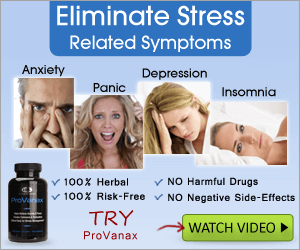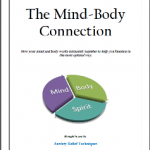Depression and anxiety are two of the most commonly diagnosed mental disorders in the world today. Although these are quite different illnesses and come with their own set of symptoms, causes and treatments, people often mistake one for the other, because they usually occur at the same time.

The confusion about the symptoms of depression and anxiety is compounded even more because there are many cases in which one can actually trigger the other. Of course, this does not always happen but when it does, it is very important to identify which one occurred first because that is the illness that has to be given the correct treatment.
In order to pinpoint which of these two mental disorders a person is suffering from, a thorough view of the patients’ signs and symptoms for depression and anxiety have to be determined and assessed.
Signs and Symptoms of Depression and Anxiety
When considering your own situation with anxiety and depression, it helps to understand the basic symptoms; you may have only a few of them or you may have most of them.
Everyone has feelings of sadness from time to time, but with depression, this is more of a long-term, chronic feeling.
Common Depression Symptoms
- Feeling sad persistently
- Feeling worthless, helpless, or feelings of guilt
- Difficulty concentrating
- Indecisiveness
- Interruption in your sleep schedule
- Losing interest in your favorite activities
- Changes in your appetite
- Chronic pain or headaches
- Thoughts of suicide.
- Decreased energy
- Isolation.
Common Anxiety Symptoms
Anxiety has a different set of symptoms. Most people feel anxiety from time to time. Like depression, an anxiety diagnosis is made from more persistent problems. Some symptoms include:
- A feeling of apprehensiveness
- Feelings of danger or panic
- Feelings of powerlessness
- Sweating
- Increased heart rate
- Weakness.
However, depression and anxiety can go hand in hand. You may also experience some of these symptoms:
- Rapid heartbeats, pain in the chest area and palpitations.
- Breaking out in cold sweat for no apparent reason
- Insomnia
- Constant irritability
- Frequent worrying that something bad is about to happen
- Stomach aches.
Normal cases of anxiety usually blow over as soon as the triggering event is over but when a person suffers from clinical anxiety, he may feel the symptoms continuously for several days or even weeks. Eventually, he will try to isolate himself from the rest of the world because of his irrational fears.
In this regard, depression and anxiety are closely linked — when a person diagnosed with anxiety cordons himself from society, he usually ends up being clinically depressed as well.
How Are Depression and Anxiety Related?
If you do suffer from anxiety and depression, you may wonder how the two are related. In the past, anxiety and depression have been thought of as two separate problems that happen to go together.
While many people still treat them that way, modern research suggests that they’re really the same disorder. Much of what’s been discovered about genetics and the way the brain is functioning shows that both anxiety and depression have similar roots.
- A person with anxiety will have nervousness about things that are happening now or in the future. He or she may also have fear and even panic about situations and see danger where others don’t.
- People who have depression often have some of the symptoms of anxiety, only depression is coupled with a feeling of hopelessness. It’s as if they feel they won’t be able to handle the things that they fear.
- Anxiety and depression are so closely related that more than half of people who have depression also have anxiety. When you have both depression and anxiety, you’re actually at a greater risk of having the disorders affect your work and relationships and even of suicide.
In general, the treatments for anxiety and depression are very similar. Treating with medications alone is usually not enough. Most people who suffer from depression and anxiety need to have counseling so that they can learn skills to cope with stress, disappointment, and other difficulties.
Often people are helped by going through counseling for three to four months. This is generally enough to make changes in your lifestyle and develop coping skills that help you to deal with your feelings.
While anxiety and depression can be debilitating, there’s also a lot of hope. Progress is being made bringing to light new therapies that involve more environmental and lifestyle changes and less use of anti-depressants. These treatment options are more accessible, affordable and, yes, more effective for many people with depression.
We can actually take comfort in the fact that there are many effective natural treatments for the symptoms of depression and anxiety, such as natural supplements, therapy and counseling.
Affiliate Disclosure
My website contains affiliate links, which means if you purchase any products mentioned in my articles, I may receive a commission. If you do, thank you!






I suffer badly with anxiety and depression , i am on medication but apart from that my doctor does not seem interested , I also suffer with severe COPD but feel so isolated as no one seems to care about how i feel or what i am going through .
Hi Susan,
I care how you feel and understand what you are going through! So many people with anxiety and depression feel exactly the same way you do. It’s sad but true.
Sometimes I wonder if it’s not that the doctor’s don’t seem to care, it’s just they see what appears to be helplessness and sadness day-in and day-out that perhaps they become what appears to be uncaring.
I have a few friends that have severe anxiety disorders and suffer with chronic depression and I have one friend that is actually a physiotherapist. Sometimes I want to put my arms around her and tell her everything will be alright as I see such sadness in her eyes.
Perhaps finding another physiotherapist or doctor that you relate to better may help. Again, one of my friends has seen many and she only recently found ‘the perfect one’ who listens to her totally and completely.
I am not a doctor or a therapist, I am just someone that has suffered with anxiety issues since my first memories. So I do care and understand.
I love sharing and commenting on my website…and I will always reply to you. You can visit me (on any pages/articles on my website…) and ‘talk’ to me.
I welcome you to share your feelings if you ever wanted to, as others will be able to read our conversations and know they are not alone either.
I look forward to hearing from you! Have a beautiful day, Jennifer.